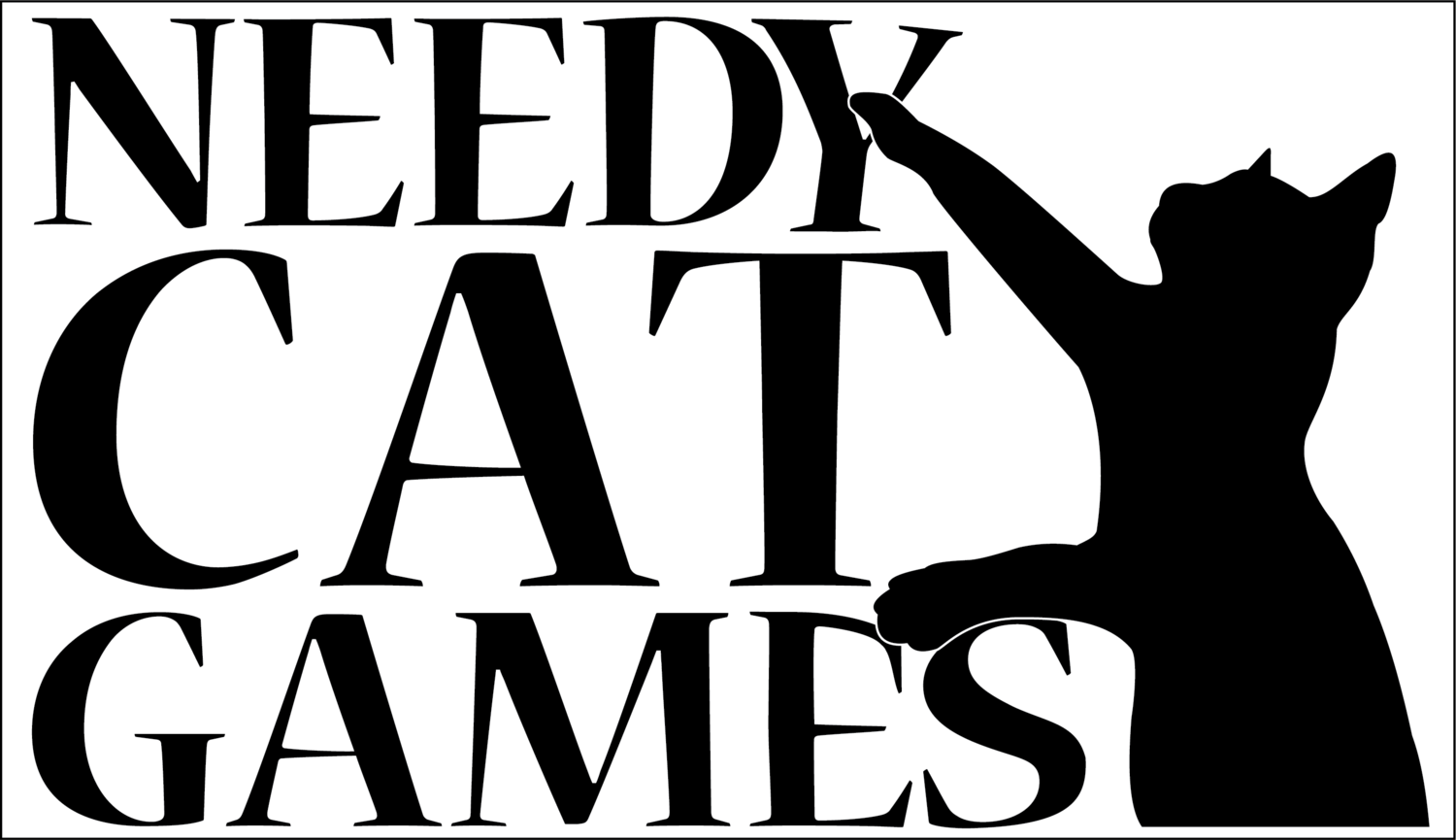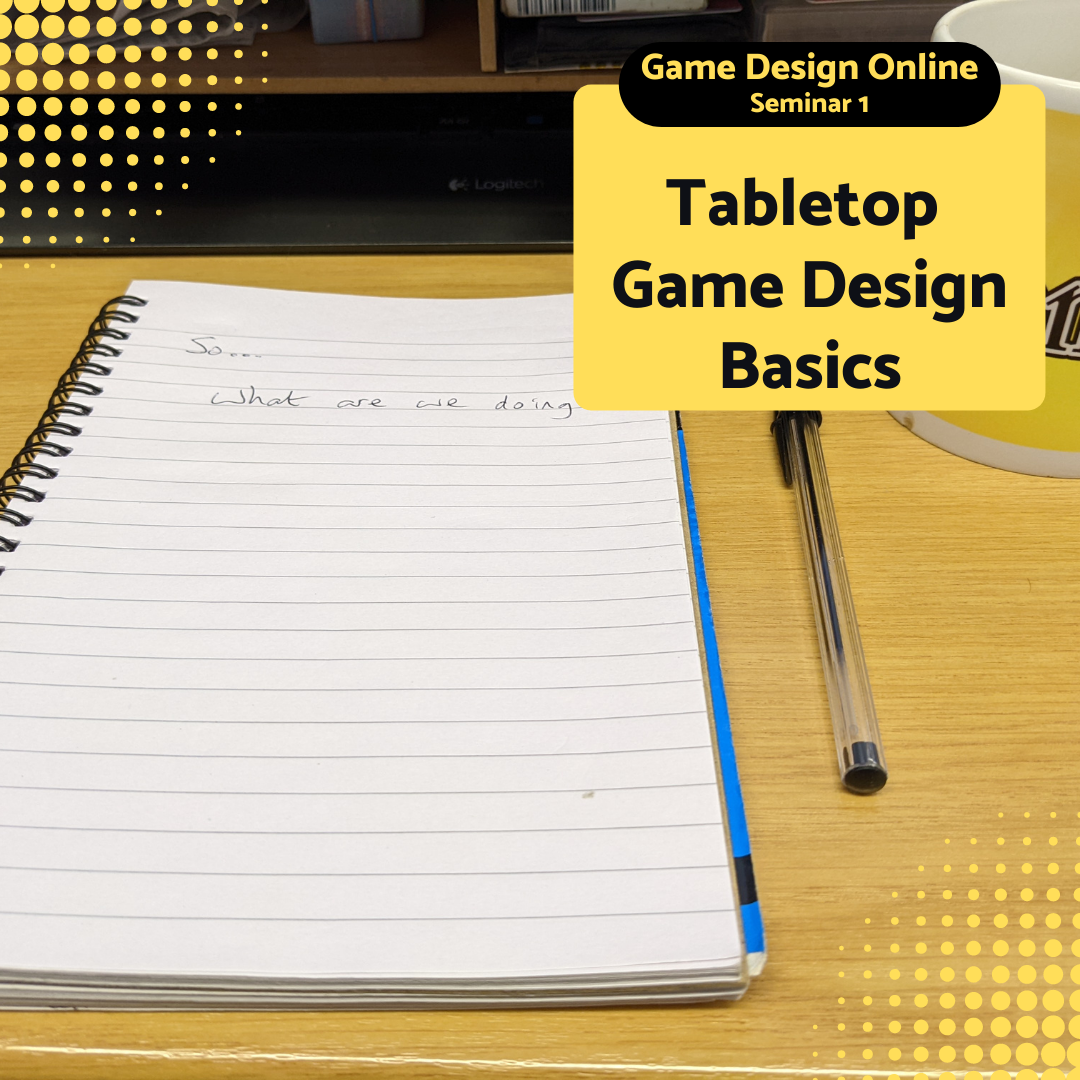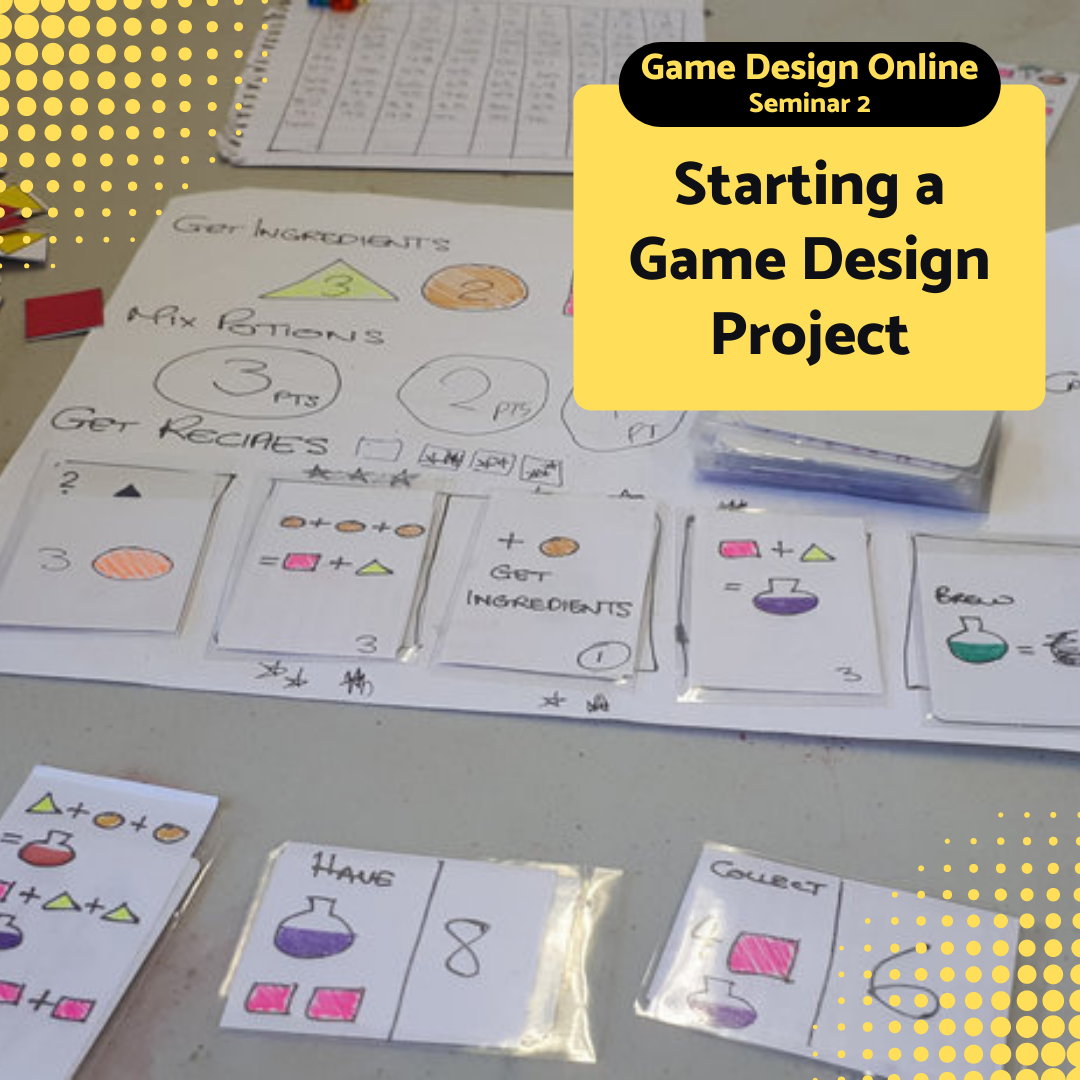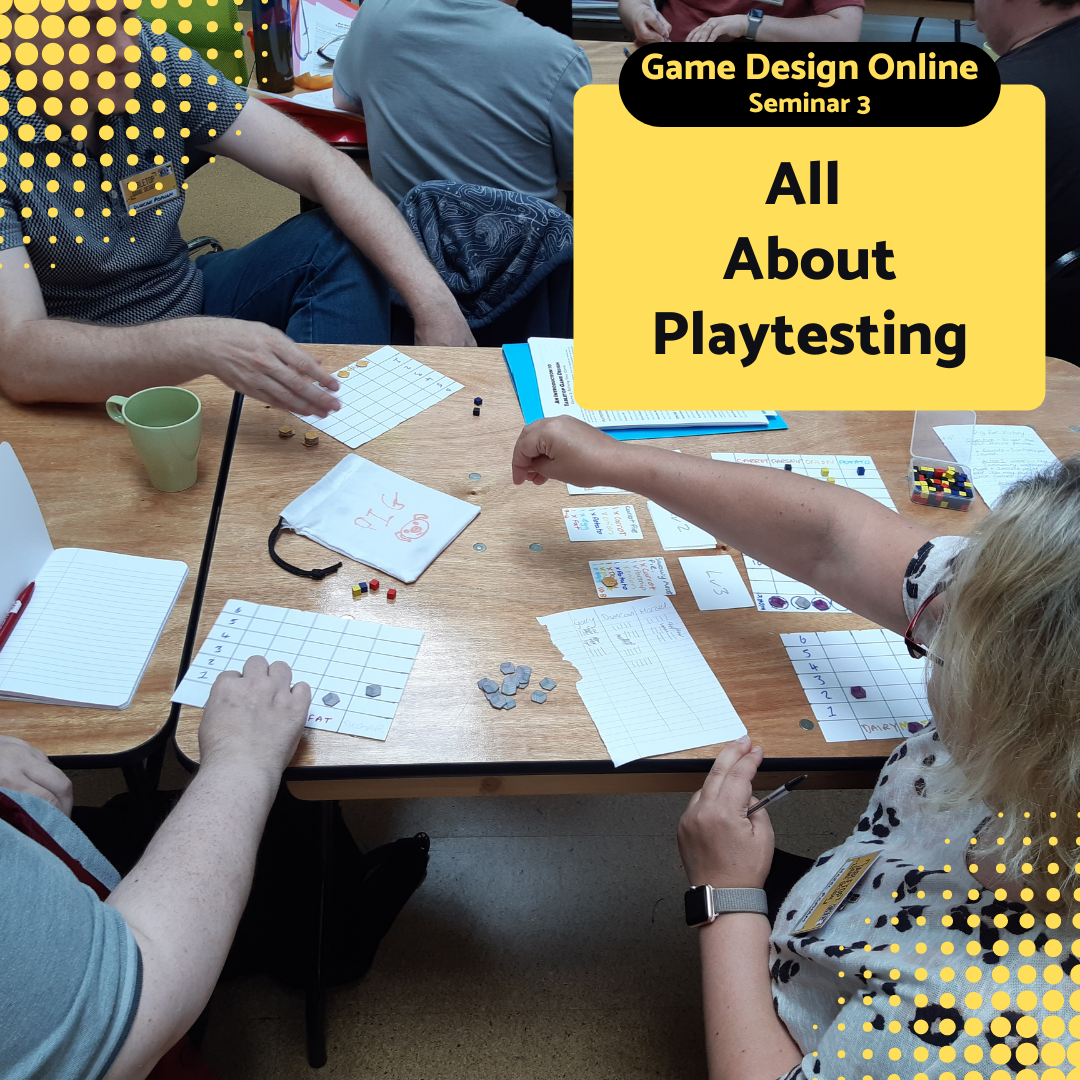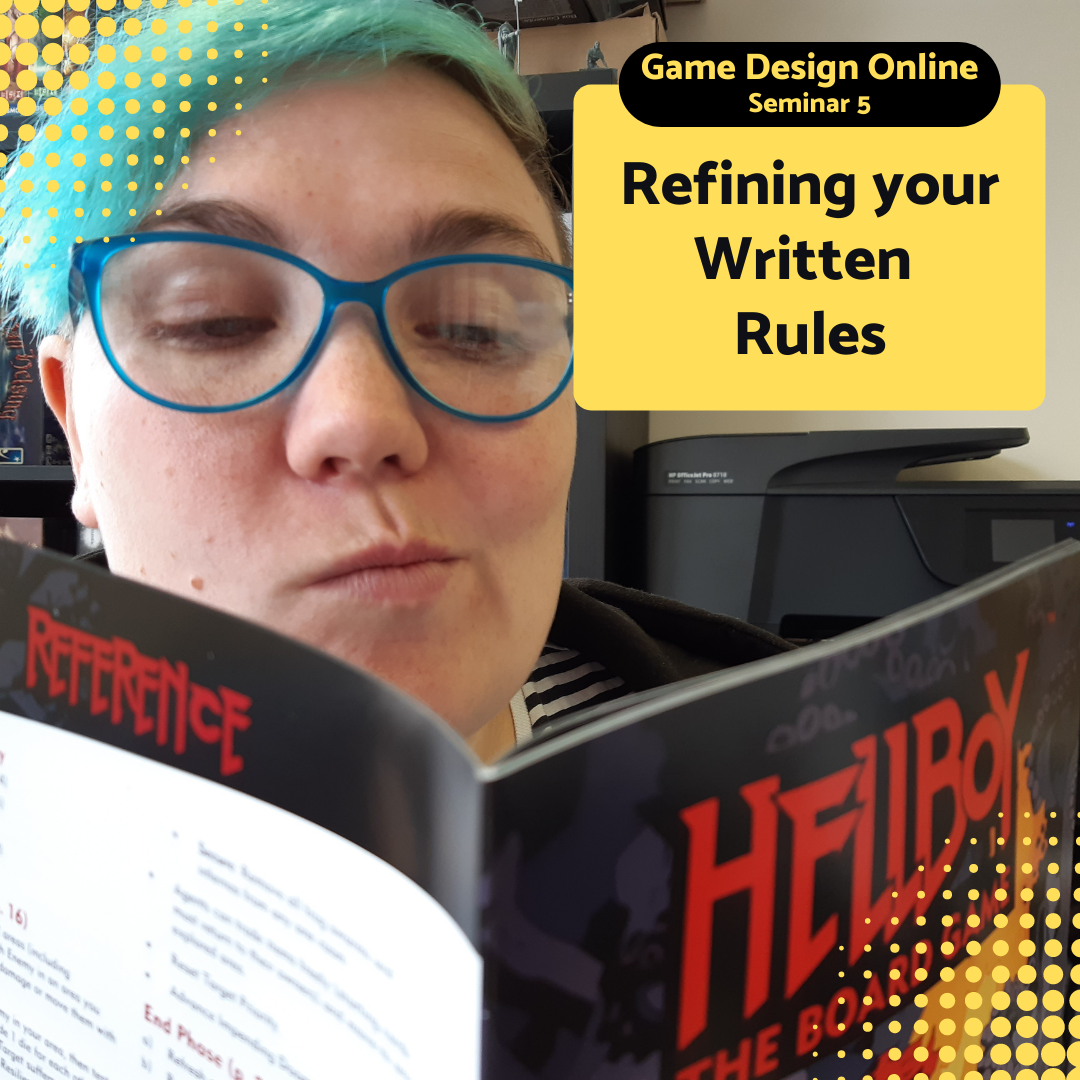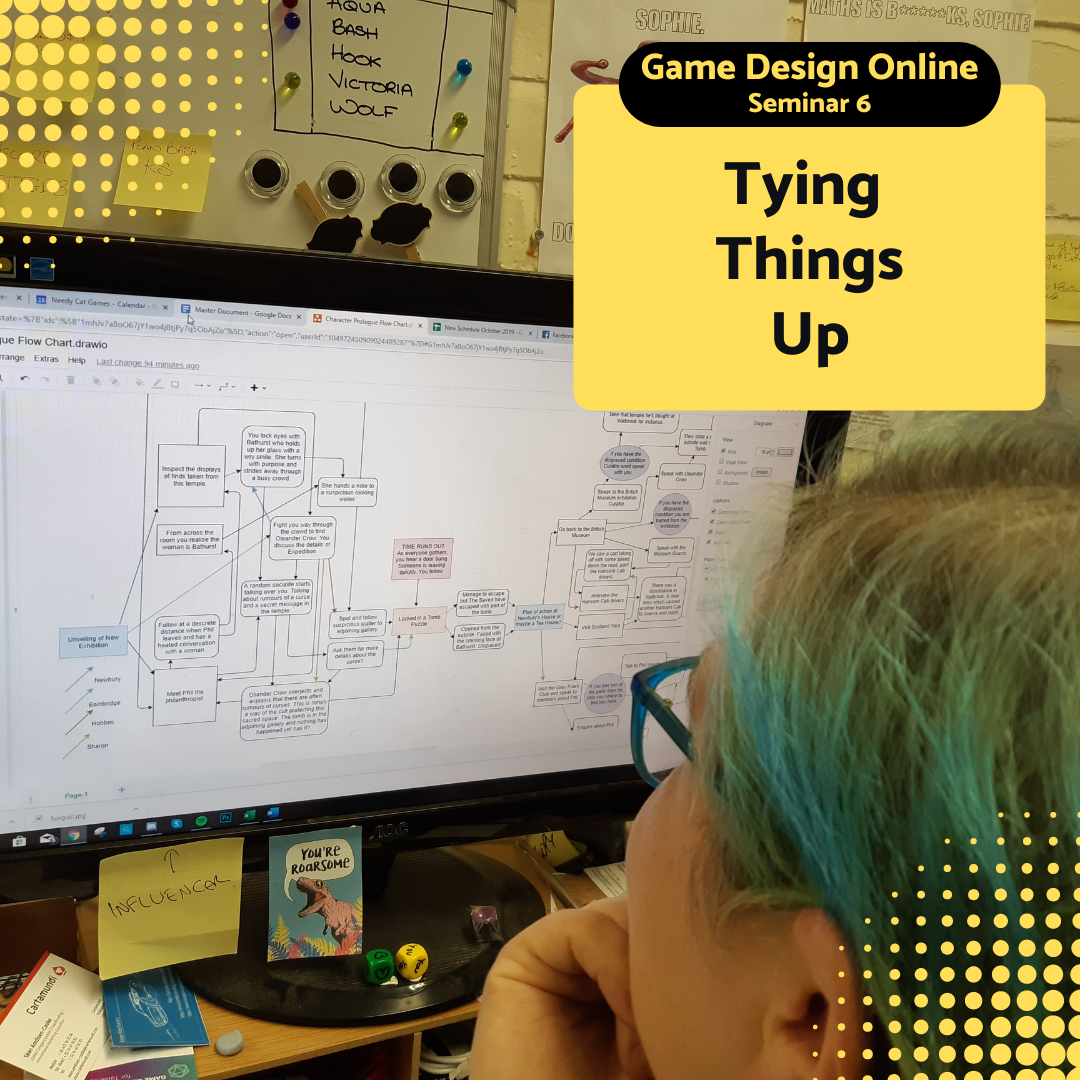Game Design Online
We’ve been running tabletop game design courses for several years, and it’s one of our favourite things to do. In early 2020, shortly after the UK went into lockdown, James ran a six-part course online, aimed at newcomers to tabletop game design. We made recordings available through this site, and they’ve become a really popular item!
However, James was never quite happy with the recordings. The video and audio quality weren’t great, and he’s had time to further develop some of the concepts that he talked about. More importantly, he had a rather hilarious lockdown beard, which only got worse as the series went on. So two years later he decided to run the course again, with a load of improvements!
Game Design Online is a series of six one-hour seminars, aimed at newcomers to tabletop game design. If you’ve ever wanted to create your own board game or card game but haven’t had much success, this is for you!
Each seminar is self-contained, so you can just dip into the ones that seem the most interesting or relevant to you. However, they are also written to be enjoyed as a full series, walking you through the whole design process one step at a time. An optional exercise is provided at the end of each seminar, giving you the chance to put your new skills into practice, and you’re invited to come along to the Needy Cat Games Discord to ask any questions and join our growing community of game designers!
When you buy a ticket, you will be sent a link to the seminar recordings, along with slides, supporting materials and a link to join our Discord server. The seminars were originally delivered on a one-per-week basis, but you will have unlimited access to the recordings and can watch (and re-watch!) them at your own pace.
We can’t wait to follow your progress!




…or read more about the seminars below.
Seminar one is Tabletop Game Design Basics, and introduces the Needy Cat Games design process – a very useful system which breaks game design into a series of manageable steps. It also dispels some myths that often create stumbling blocks for new designers, and talks about the importance of humility in game design. This session’s exercise invites you to come up with a set of simple game concepts, and turn one of them into a short pitch.
Seminar two is Starting a Game Design Project, and starts diving into the actual process of designing a game. We’ll talk about finding (and generating) inspiration, crafting a game concept and the messy, enjoyable art of getting ideas out of your head and onto the table. This session’s exercise challenges you to create a Test Build prototype for a new game.
Seminar three is All About Playtesting, which focuses on the most important – and most often neglected – part of tabletop game design. We’ll talk about the “iteration cycle”, establish three levels of testing, explain how they work at different stages of our process, and cover several skills that will help you make the most of your playtest sessions. This session’s exercise asks you to run a short closed playtest using the methods discussed during the session.
Seminar four is An Introduction to Rules Writing, and aims to teach some basic principles for creating written rules. We’ll answer the question “what should a rulebook do”, explain the different stages of rules writing and take a detailed look at writing a rules reference that codifies your systems and mechanics. For this session’s exercise, you will create a basic rulebook for a simple game, breaking its systems down into their simplest written form.
Seminar five is Refining Your Written Rules, and goes into more detail on creating clear documentation for your game. We’ll talk about using rules terms, monitoring your reader’s mental load, and structuring your manuscript through the use of paragraphs, sections and chapters. This week’s session will get you to study a rulebook for a game you know well, map it out with a structural framework… and see if you can make any improvements!
Seminar six is Tying Things Up, rounding off the series with some useful advice for various stages of the progress. We’ll give a step-by-step guide to writing a rules manuscript, provide a handy troubleshooting checklist that will help you when everything goes wrong, and give some insightful advice for accepting - and surviving! - feedback. The final exercise is all about bouncing back from failure, and accepting it as part of the game design process.
